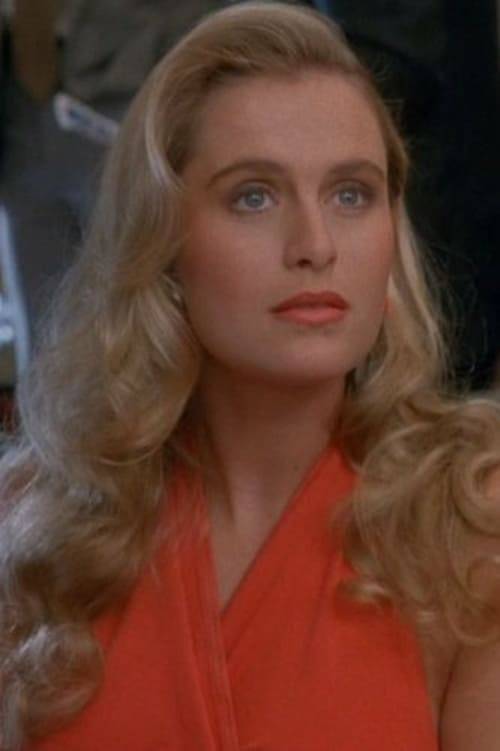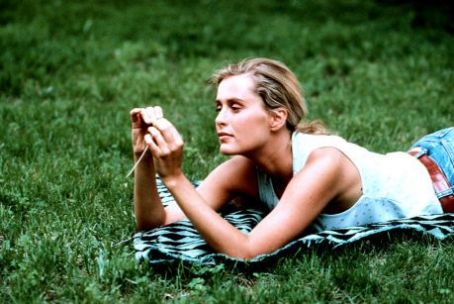There's a new film capturing attention, a biographical psychological drama called 'Maria,' which, you know, brings to life the final days of a truly remarkable figure. This movie, directed by Pablo Larraín and written by Steven Knight, features Angelina Jolie in the central role, alongside actors like Pierfrancesco Favino, Alba Rohrwacher, and Haluk Bilginer. It’s a look at Maria Callas, someone many consider the greatest opera singer the world has ever known, during what are described as her very last moments.
The movie, apparently, made its first appearance at the Venice International Film Festival on a Thursday in August, generating quite a bit of conversation. It offers a portrayal of Callas, a woman whose name, Μαρία, has roots even in the New Testament, appearing next to Mariam. This production, it seems, aims to show us the closing chapter of a life that was, in a way, larger than life itself, giving us a peek into the emotional landscape of a celebrated artist.
With Angelina Jolie taking on such a significant part, there's already talk about her performance possibly being a contender for major awards. The film itself, coming to Netflix, focuses on a single, important week in 1977, set in Paris, as it explores the concluding period of this legendary opera diva's existence. It’s an opportunity, for sure, to consider the stories of influential people and how they are brought to the screen.
Table of Contents
- The Life of a Legend - Who Was Maria Callas?
- Bringing a Storied Past to the Screen - How Does 'Maria' Portray its Subject?
- Angelina Jolie's Portrayal - What Does She Bring to Maria Callas?
- The Vision of Pablo Larraín - What Kind of Director Shapes 'Maria' and Similar Narratives for Maria Holvoe?
- The Creative Team Behind the Story - Who Else Shapes the Film 'Maria'?
- Premiering a Powerful Story - What Was the Reception at Venice?
- 'Maria' on Netflix - What's Next for Viewers?
- The Enduring Legacy - How Do Stories Like 'Maria' Continue to Resonate?
The Life of a Legend - Who Was Maria Callas?
When we talk about Maria Callas, we are, basically, talking about someone often called the world's greatest opera singer. Her voice, her stage presence, and her dramatic flair, really, set a very high standard for vocal artistry. She wasn't just a singer; she was a performer who fully embodied the characters she played, bringing a level of emotional truth that was, in a way, almost unheard of. Her story is one of immense talent, public adoration, and also, it seems, personal struggles that played out on a grand scale.
The film 'Maria' focuses on the very last days of her existence. This choice of focus, you know, suggests a look at the quiet, reflective moments of a life that had been so public and so intense. It’s a chance to consider what it means for someone who has lived under such bright lights to approach their final curtain, so to speak. This kind of biographical detail, the human side of a global figure, is often what draws us into these stories.
Here’s a little bit about Maria Callas, as understood from the details we have:
| Detail | Description |
|---|---|
| Full Name | Maria Callas |
| Profession | Opera Singer (often called the world's greatest) |
| Period of Focus in Film | Her last days, specifically the final week in 1977 |
| Film Setting | Paris |
| Legacy | A legendary opera diva, whose influence is still very much felt |
Her story, really, touches on themes of fame, artistry, and the personal cost of a life dedicated to performance. It makes you think about the quiet moments that follow a career lived so loudly. The film, in a way, offers a chance to sit with her during this very private time, to see the person behind the public image, and to consider the quiet dignity or perhaps the deep sorrow that might come with such a closing chapter. It’s a powerful idea, to concentrate on those very specific, final moments of a truly remarkable individual.
Bringing a Storied Past to the Screen - How Does 'Maria' Portray its Subject?
The film 'Maria' is described as a "biographical psychological drama," which, it seems, tells us a lot about its approach. It's not just a straightforward recounting of events; it’s, perhaps, more interested in the inner workings of Maria Callas's mind during her final days. A "psychological" element suggests a deep look into her feelings, her memories, and the emotional weight of her life, rather than just the facts. This kind of portrayal, you know, can be very compelling, offering a sense of connection to the person on screen.
The choice to focus on her final week in Paris in 1977 is also quite specific. It narrows the scope, allowing the filmmakers to truly concentrate on a particular period, rather than trying to cover an entire lifetime. This can make the story feel more intimate and, really, more immediate. It’s almost like we are invited to spend those very specific moments with her, experiencing her reflections and her feelings as she faces the end of her journey. This approach, for sure, can make a biographical story feel less like a history lesson and more like a personal experience.
The mention of "what's real and what's not" in the context of the film is also very interesting. It acknowledges that while it's based on a real person, there's an artistic interpretation at play. This is common in biographical films, where creators take liberties to tell a compelling story, to, perhaps, capture the essence of a person rather than every single detail. It suggests that the film might explore the emotional truth of Callas's experience, rather than just presenting a dry historical account. This kind of creative freedom, in a way, can make the story resonate more deeply with an audience, allowing for a more profound connection to the character and her experiences.
Angelina Jolie's Portrayal - What Does She Bring to Maria Callas?
Angelina Jolie taking on the part of Maria Callas is, you know, quite a significant casting choice. She is an actress known for her powerful performances and her ability to portray complex characters. For a role like Maria Callas, especially in her final, reflective period, Jolie’s presence brings a certain weight and expectation. The text even hints at her being a "potential Oscar heavyweight," which speaks to the high hopes for her performance. It suggests that she might capture the depth and emotional layers of a person who lived a life of immense public scrutiny and private intensity.
Playing someone as iconic as Maria Callas is, truly, a considerable challenge. There are expectations from opera enthusiasts and those who admire Callas's legacy. Jolie’s task is to not just imitate, but to embody the spirit of this legendary figure, particularly during a time of great vulnerability. The film's focus on the "last days" means she will likely be exploring themes of solitude, reflection, and the quiet dignity that might come with the closing chapters of a remarkable existence. Her ability to convey deep emotion and internal struggles, really, makes her a fitting choice for such a psychologically driven portrayal.
When an actor of Jolie’s caliber takes on such a role, it can, perhaps, bring a new audience to Maria Callas’s story. People who might not be familiar with opera or Callas herself could be drawn in by Jolie’s star power and her compelling acting. This, in a way, extends the reach of Callas's legacy, allowing more people to learn about her incredible life and artistry through a fresh, dramatic lens. It’s a chance for a new generation to connect with a figure who shaped the world of music in such a profound manner, thanks to a performance that, one hopes, will be truly memorable.
The Vision of Pablo Larraín - What Kind of Director Shapes 'Maria' and Similar Narratives for Maria Holvoe?
Pablo Larraín, the director of 'Maria,' is known for his distinct way of telling stories, especially those about famous or influential people. His films often delve into the inner lives of his subjects, exploring their psychological states and the pressures they face. This aligns very well with 'Maria' being described as a "biographical psychological drama." He tends to create movies that are not just about facts, but about feelings, about what it’s like to be a person under extraordinary circumstances. This approach, for sure, means the film will likely be more about Callas’s emotional world than a simple timeline of her achievements.
Larraín’s previous works have shown a knack for taking historical figures and presenting them in a very human, sometimes unsettling, light. He often focuses on specific, pivotal moments or periods in their lives, much like 'Maria' concentrates on Callas’s final week. This helps to build a very intense and focused narrative, allowing the audience to really connect with the character on a deeper, more personal level. His style, it seems, often involves a blend of realism and artistic interpretation, which can make the stories feel both authentic and visually striking. It’s a way of looking at fame and legacy that feels, in some respects, very intimate.
For those interested in how directors shape narratives around significant individuals, Larraín's work with 'Maria' offers a compelling case study. His choices in directing can profoundly affect how we perceive the person on screen, inviting us to consider the emotional weight of their experiences. This kind of storytelling, you know, makes us think about the broader ways in which the lives of influential people, perhaps even figures like Maria Holvoe, could be explored through a lens that values psychological depth and emotional truth over mere historical recounting. It’s about finding the universal human experiences within a very specific, famous life, and making them resonate with a wider audience.
The Creative Team Behind the Story - Who Else Shapes the Film 'Maria'?
While Angelina Jolie and Pablo Larraín are, of course, central to the film 'Maria,' a big production like this always involves a talented group of people working together. Steven Knight, for instance, is the writer, and his contribution to the script is, really, what gives the story its structure and dialogue. The way the characters speak, the flow of the narrative, and the emotional beats are all shaped by the writer's vision. It’s his words that bring Maria Callas’s final days to life on the page before they are translated to the screen. A good script, basically, is the foundation for a compelling film.
Beyond the lead actor, the film also features other notable performers, including Pierfrancesco Favino, Alba Rohrwacher, and Haluk Bilginer. These actors, you know, play important supporting roles that help to build the world around Maria Callas and provide context for her experiences. Their performances contribute to the overall atmosphere and emotional texture of the film, adding depth to the story. Each actor brings their own interpretation to their part, creating a tapestry of performances that supports the central narrative. It’s a collaborative effort, for sure, where every person’s contribution helps to make the story feel complete and believable.
The making of any film, especially one that delves into the life of a real person, is a massive undertaking that relies on the skills of many individuals. From the people who design the sets and costumes to those who handle the lighting and sound, every single role is important. This collective effort is what allows a vision to become a reality, turning words on a page into a moving picture that captures the audience's imagination. It’s a complex dance of creativity and technical expertise, all aimed at bringing a powerful story to life in a way that truly connects with viewers, making the world of Maria Callas feel, in a way, very real and immediate.
Premiering a Powerful Story - What Was the Reception at Venice?
The fact that 'Maria' premiered at the Venice International Film Festival on a Thursday in August is, quite honestly, a very significant detail. Film festivals like Venice are, basically, major platforms for new movies, especially those with serious artistic intentions. A premiere there often means the film is considered to be of high quality and has the potential to generate a lot of buzz. It’s where critics and industry professionals first get to see the movie, and their initial reactions can really set the tone for its wider release. This kind of debut, you know, suggests that the creators have confidence in their work and believe it will resonate with a discerning audience.
The atmosphere at a festival premiere is often very exciting. There’s anticipation, curiosity, and a sense of occasion. For a biographical drama about someone as iconic as Maria Callas, starring an actress like Angelina Jolie, the attention would have been considerable. The early reviews and discussions that come out of a festival like Venice can, perhaps, make or break a film’s initial momentum. It’s where the conversation starts, where the first impressions are formed, and where the movie begins its journey into the public consciousness. This is where the world gets its first taste of how this particular story, about this very famous person, has been brought to the screen.
A festival premiere also offers a chance for the filmmakers and cast to present their work to the world and talk about their creative process. It’s a moment of culmination after a lot of hard work. For 'Maria,' it was the first opportunity for audiences to see how Pablo Larraín, Steven Knight, and Angelina Jolie interpreted the final chapter of Maria Callas’s life. The initial reception at Venice, it seems, would have been a key indicator of how well they succeeded in capturing the essence of this legendary opera singer and her psychological journey. It’s a big moment, for sure, in the life



